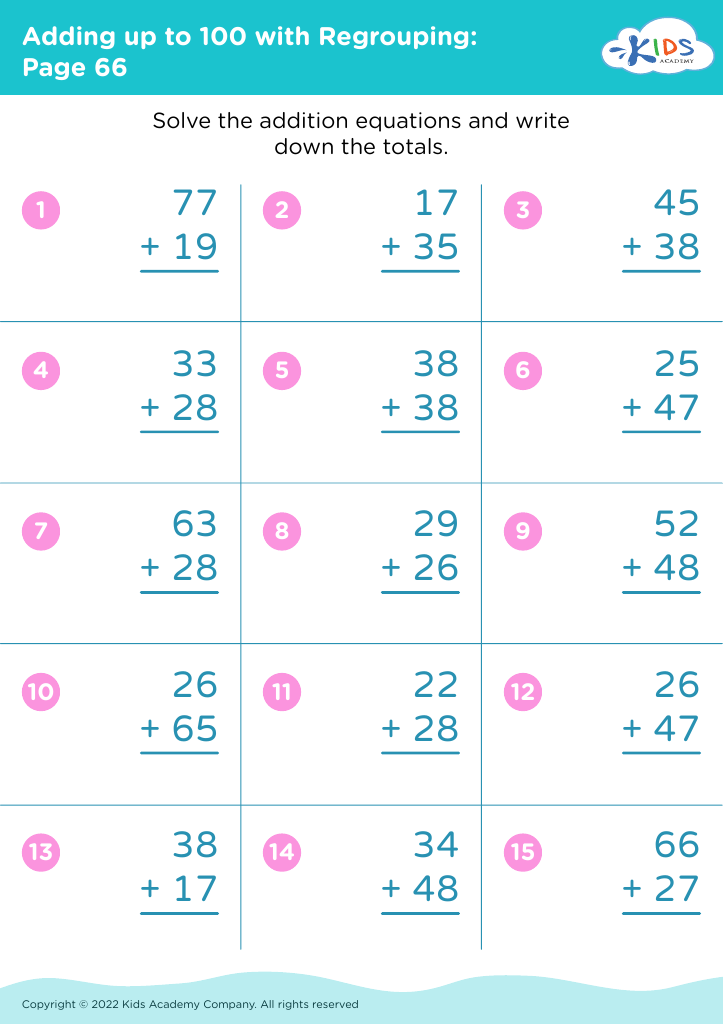Develop inference skills Addition & Subtraction Worksheets for Ages 3-8
3 filtered results
-
From - To
Enhance your child’s mathematical abilities with our "Develop Inference Skills Addition & Subtraction Worksheets" designed for ages 3-8. These engaging worksheets promote inference skills, encouraging kids to think critically and draw conclusions based on visual and numerical clues. Activities are tailored to be age-appropriate, making math fun and accessible. Children will practice addition and subtraction while developing problem-solving strategies essential for future learning. Parents and educators can effortlessly enhance early math skills with these printable resources, perfect for both classroom activities and at-home practice. Help your child build a strong foundation in math and reasoning with our expertly crafted worksheets!
Developing inference skills in addition and subtraction for children aged 3-8 is crucial as it lays a foundational understanding of mathematics and enhances overall cognitive abilities.
Inference skills allow children to understand relationships and patterns, which are essential when tackling math concepts. For example, recognizing that if 3 apples plus 2 apples equals 5 apples, they can infer that if 3 apples are taken away, there would be 2 apples left. This ability to make connections promotes critical thinking and problem-solving skills, essential not just in math but across various subjects.
Moreover, inference skills foster confidence in tackling mathematics. When children can make predictions and test their ideas, they are more likely to engage positively with math, leading to a lifelong appreciation of the subject. Teachers and parents play a vital role in this development by providing opportunities for hands-on activities, discussions that encourage reasoning, and real-world applications.
By focusing on inferential reasoning in math from an early age, children will not only enhance their addition and subtraction skills but will also cultivate a mindset conducive to learning, creativity, and curiosity, which are crucial for their future academic success.























